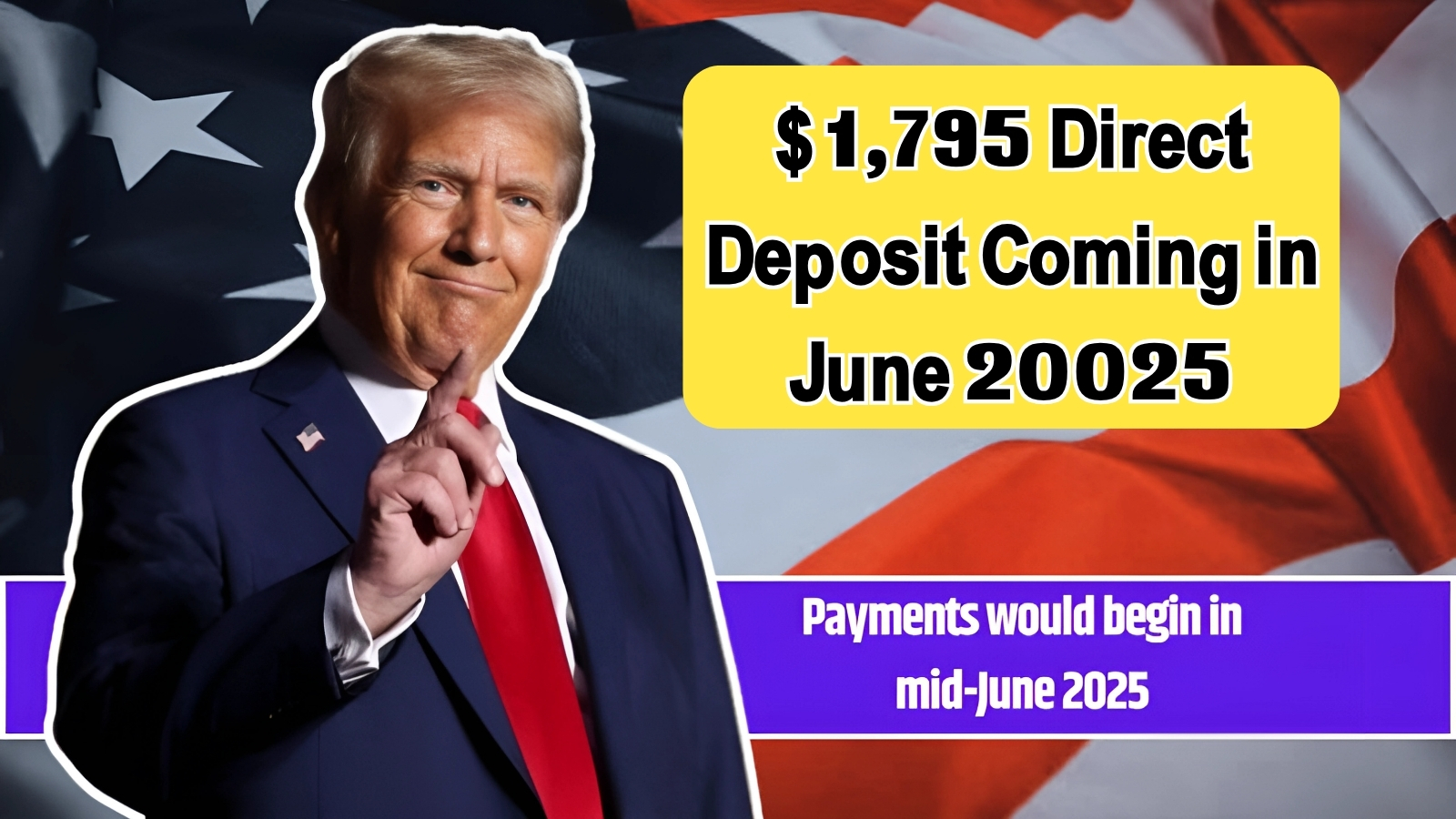As we venture further into 2025, plenty of Americans are still weighing with new ways to stay afloat amidst rising prices — be it groceries, rent, gas, medical bills.
But there is some good news for the millions of men and women in families: A $1,795 direct deposit is coming your way this June 2025.
It’s not a new stimulus check, but it is an already-scheduled federal benefit payment that is a lifeline that so many people rely on month in and month out to make ends meet.
So, who’s eligible? When is the money landing? And what, exactly, does this sum cover? Let’s break it all down.
What Is the $1,795 Direct Deposit?
The $1,795 payment isn’t a universal, flat-rate stimulus payment — it’s the approximate average monthly benefit that recipients who would receive Social Security, SSDI (Social Security Disability Insurance) or retirement benefits in 2025 would get that year.
That amount will vary, based on the recipient’s work history, disability status and living situation, but many will find this number (more or less) in their bank accounts in June.
Here’s a breakdown of where this number comes from:
Average retired worker’s benefit (2025): About $1,915 a month
Average SSDI benefit: Approximately $1,489 a month
Survivors and dependents: Have ranged but usually between $1,200–$1,800
Some after deductions or adjustments get about $1,795
This month’s checks also include Cost of Living Adjustments (COLA) implemented earlier this year—providing recipients with a modest increase to help offset inflation.
Calendar of Payments of June, 2025
Payments for Social Security and SSDI are based on your birthday or when you started receiving them. Here’s the pattern for June:
Birth Date Payment Date
June 12-25 Wednesdayboxoffice: 1st-10th
It was 11th June 20 – 11th to 20th Wednesday, June 19, 2025
21st–31st Wednesday 26 June 2025
Beneficiaries before May 1997 Monday 3 June 2025
If you’re getting SSI, your June check probably arrived early, on May 30, because June 1 is a weekend.
Payments are delivered either by direct deposit or the Direct Express debit card, depending on the choice made by the recipient.
The money generally arrives by 9 AM in your local time zone, but processing times can be slightly different for every bank.
Who Is Eligible?
You can get this $1,795 payment if you belong to one of these groups:
✅ Retirees who get Social Security
✅ SSDI Recipients with Eligible Medical Conditions
✅ If you’re the survivors of a deceased workers (like spouses, children, or dependents)
✅ SSA beneficiaries who started receiving benefits prior to 1997
That’s the precise number you’ll get in your bank account — though it can vary slightly based on taxes, Medicare deductions and offsets to other federal benefits. But $1,795 is still a very achievable average for a great many in 2025.
June 2025 Direct Deposit Pros and Cons
Pros Cons
You are paid on time to budgetYou don’t get paid the full $1,795 hands down
Covers basic needs−food, rent, medications No delays, other than if bank info is not accurate or if it’s a holiday
Reflects yearly COLA adjustments for inflation Still may not be enough in high-cost areas
Into people’s bank accounts/cards, directly and safely deposited Some might think this is a new stimulus; it is not
How to Prepare for Your Session
Visit your SSA account or mySocialSecurity account to find out the exact date and dollar amount.
Confirmed his bank details are up to date to prevent any delays},’ the colleague said.
If your payment doesn’t come 3 business days after the expected payment date, contact the SSA
The way to quell a cashflow speedbump: Beware that while this payment is a saviour, it has to last you the month!
Final Thoughts
The $1,795 direct deposit is not a surprise bonus, but it is a crucial lifeline for millions of Americans living on a fixed income. Whether you’re filling a prescription, buying groceries, or helping a grandchild with school supplies, this payment keeps things going in a world that seems to be increasingly overpriced these days.
If you are not yet receiving benefits but think you may qualify, don’t delay — the sooner you start the application process with Social Security, the sooner you might be getting your own payment down the line.
